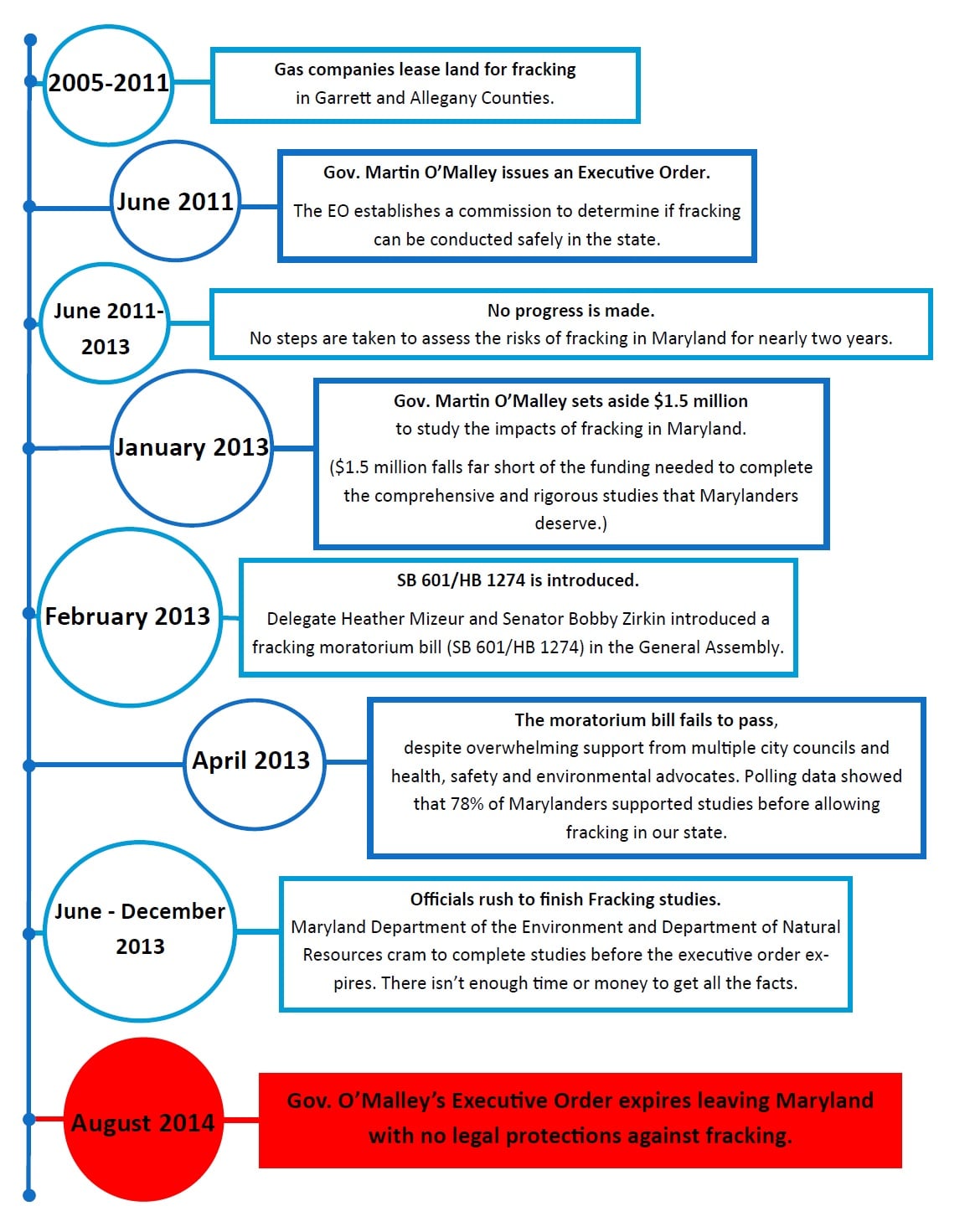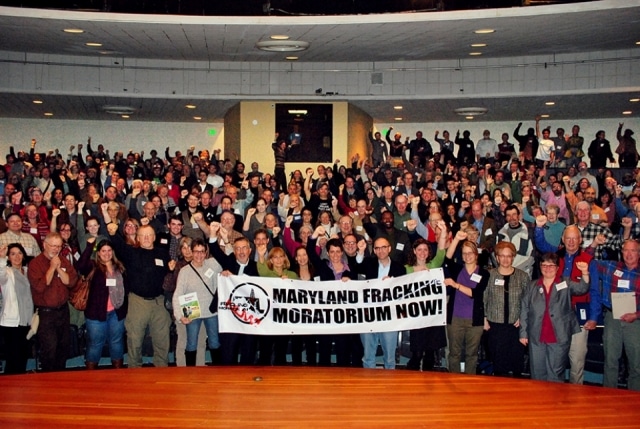An independent assessment commissioned by the Chesapeake Climate Action Network and Citizen Shale, two Maryland environmental groups, warns hydraulic fracturing (fracking) in the state would pose a “high risk” to Maryland air and water.
The assessment, titled, “Shale Gas Risk Assessment for Maryland,” was conducted by Ricardo-AEA, the same United Kingdom-based independent environmental consulting firm that led the European Commission’s hydraulic fracturing risk assessment and regulatory review.
To develop an evaluation of the potential impacts of fracking in Maryland, the firm reviewed evidence of environmental and health issues associated with hydraulic fracturing, the gas industry’s standard operating practices and Maryland’s current regulatory framework. In the process, Ricardo-AEA conducted a literature review of more than 200 documents and evaluated Maryland-specific geological data. The study did not address climate or carbon footprint issues.
The assessment found a cumulative risk grade of “high” or “very high” in nine of ten qualities if fracking were to occur in Maryland. The qualities included a high risk of surface water contamination, ground water contamination, noise impacts, visual impacts, increased traffic and threats to biodiversity.
Additionally, the study notes fracking is estimated to use 3.88 million gallons of water per well, threatening Maryland water supplies from two sides. Fracking would also produce dangerous air emissions such as particulate matter, nitrogen oxides, carbon monoxide, volatile organic compounds and sulfur dioxide.
The study also predicts a “very high risk” of undeveloped land being taken over for development, with up to 10 percent more land needed for full development of a gas reservoir than is currently described as developed in Maryland’s Allegheny and Garrett counties.
Though two western Maryland counties, Allegheny and Garrett, lie above the Marcellus Shale, fracking is currently prohibited in the state.
In January 2011, Maryland Governor Martin O’Malley signed an executive order to establish the Marcellus Shale Safe Drilling Initiative and a citizen advisory commission to evaluate the risks and benefits of hydraulic fracturing. The executive order also placed a three-year moratorium on fracking in Maryland.
Since then, fracking has continued to be a hot topic in Maryland as the advisory commission worked to assess the risks. Maryland gubernatorial candidate and Maryland Delegate Heather Mizeur first introduced the Shale Gas Drilling Safety Review Act in the Maryland General Assembly’s 2013 regular session alongside Senator Bobby Zirkin. The bill failed to pass, but it has been reintroduced in 2014 by Mizeur.
By summer 2013, it became clear health and risk assessments from state agencies would not be completed in time for the 2014 session of the Maryland General Assembly, which adjourns on April 7th.
Though Governor O’Malley set aside $1.5 million to study the impacts of fracking on Marylanders, according to the Chesapeake Climate Action Network’s website, “$1.5 million falls far short of the funding needed to complete the comprehensive and rigorous studies that Marylanders deserve.”
Both the Maryland Department of the Environment and Maryland Department of Natural Resources are in the process of completing their own health and risk assessments. According to Paul Roberts, one of the founders of Citizen Shale and a member of Governor O’Malley’s advisory commission, the health impact study is expected in June. The risk assessment does not yet have an expected release date.
“We could see the agencies weren’t going to have this all important task done,” he said during a press conference announcing the independent assessment’s release.
Alongside Chesapeake Climate Action Network, Citizen Shale went to Ricardo-AEA to ensure Marylanders would have access to an independent study assessing the risks of fracking in the state before the governor’s moratorium ran out.
“We just think that really, it’s been a long time since Maryland considered an issue of such great importance to the whole state,” Roberts said.
According to Annie Bristow of the Savage River Watershed Association, an environmental group based in Garrett County, Maryland is one of the first states to undertake such a comprehensive look at the potential impacts of fracking.
The health impact assessment expected in June, “really is the first of its kind in the U.S.,” said Roberts.
Here is a timeline put together by the Chesapeake Climate Action Network:

Image credit: Chesapeake Climate Action Network
Subscribe to our newsletter
Stay up to date with DeSmog news and alerts







